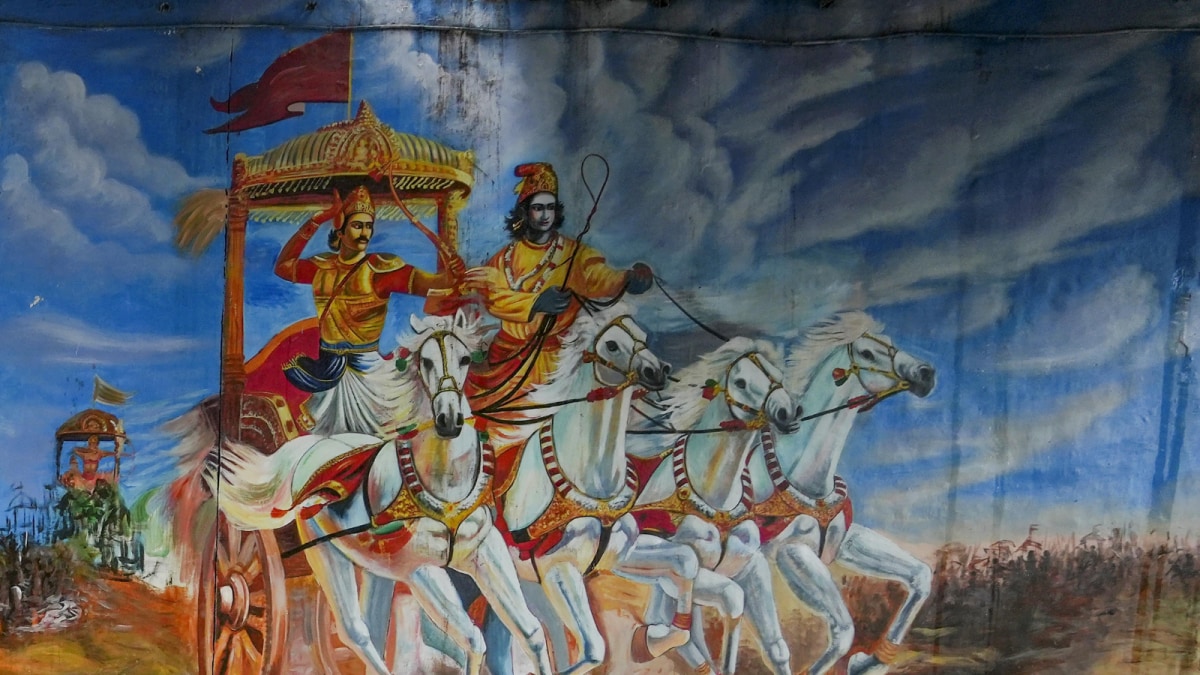Last Updated:
In the Ramayana and Mahabharata, night attacks were seen as unethical and treacherous. Warriors respected this rule as part of their moral duty
In the Mahabharata, renowned warriors such as Karna and Arjuna are described as laying down their arms after sunset. (Representative/PTI File)
In ancient Indian epics such as the Mahabharata and Ramayana, wars are described as being fought only during daylight and ceasing at sunset. This is believed to have been part of a moral code of warfare, aimed at ensuring fairness and honour in battle, rather than being driven by practical concerns like fatigue or fear of darkness.
In those times, war was believed to be more than a clash of weapons. It was seen as a battle governed by honour and strict ethical codes. Unlike modern warfare, which can unfold at any hour, ancient warriors are believed to have engaged in ‘Dharmayuddha‘, or righteous warfare, fought in accordance with principles of justice and duty.
One widely accepted rule was the cessation of fighting after sunset. Night attacks were considered unethical and akin to treachery, and it is believed that warriors on all sides respected this rule as part of their moral duty.
The practical reasons behind this rule are believed to be numerous. Night-time warfare was considered highly dangerous due to poor visibility, especially in the absence of modern tools like mobile flashlights or floodlights. The weapons of that era like swords, spears, and bows relied heavily on clear sight for accuracy and effectiveness. Engaging in combat after dark increased the risk of confusion, making it easier to accidentally harm allies or innocent bystanders.
Moreover, the physically demanding nature of warfare is believed to have made rest and recovery essential for soldiers. Battles often stretched for hours and, in some cases, continued over years, making it crucial for warriors to recuperate and plan their next moves. Carrying heavy weapons, riding horses and drawing bows required immense strength and endurance. Prolonged combat without adequate rest could prove fatal. As a result, nightfall marked a time for nourishment, rest and preparation for the next day’s fight.
Religious texts are believed to reinforce this practice. In the Mahabharata, renowned warriors such as Bhishma Pitamah, Karna and Arjuna are described as laying down their arms after sunset. Likewise, in the Ramayana, the battle between Ram and Ravana took place only during daylight hours, with both sides reportedly withdrawing to their camps at night.
Thus, it is evident that the cessation of war at sunset was not only a strategic necessity but also carried religious and moral significance, deeply rooted in the cultural ethos of the time.
- First Published:
#Wars #Paused #Sunset #Mahabharata #Ramayana #News18










